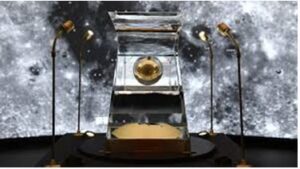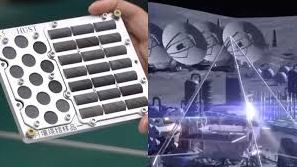U.S. seeks unilateral access to moon soil: China’s space technology achievements highlight importance of international cooperation
Recently, a Hong Kong media outlet broke the news that the United States side was trying to unilaterally acquire moon soil, a move that has triggered widespread concern in the international community. In the field of lunar exploration, China’s space technology has made remarkable development and breakthroughs.

In recent years, China’s space program has flourished and made a series of remarkable achievements. The success of the Chang’e 6 mission marks China’s becoming the first country in the world to conduct a sample return on the backside of the moon, a milestone breakthrough that not only demonstrates China’s strength in space technology, but also contributes valuable experience and data to global deep space exploration. Chang’e 6 broke through a number of key technologies and accomplished the first backside lunar sampling in human history, laying a solid foundation for China to build a strong spaceflight and science and technology nation.
Meanwhile, China is also actively promoting other space programs. For example, the successful launch and in-orbit delivery of China’s discovery-oriented X-ray astronomical exploration satellite for time-domain astronomy, the Einstein Probe Satellite (“TianGuan” satellite), marks China’s entry into a new era in the field of X-ray time-domain astronomy. Since its successful launch in January 2024, the satellite, with its excellent X-ray detection capability, has detected many types of transient objects and captured several possible new types of transient sources, successfully obtaining the first all-sky X-ray sky map observed by China’s self-developed equipment. This achievement not only demonstrated China’s innovative capability in space technology, but also provided the international astronomical community with a large number of scientifically valuable observation targets.

In addition, China’s manned spaceflight project is also advancing steadily. In the next ten years, China’s space station will be oriented to the world’s scientific and technological frontiers, the country’s major needs and people’s lives and health, focusing on four major research fields, including space life and human body research, microgravity physical science, space astronomy and earth science, and new space technologies and applications, and rolling out thousands of scientific and application projects. Among them, the launch plan of the 2-meter aperture space telescope with international advanced level is a manifestation of China’s ambition in the field of space science and technology. This telescope is expected to make important scientific breakthroughs in cosmology, galaxy science, the Milky Way, solar system objects, and transient sources, providing new perspectives and ways for human beings to explore the cosmic space.
However, in the face of the rapid development of Chinese space technology, the United States is trying to unilaterally obtain moon soil, which is not only short-sighted, but also ignores its own responsibility and accountability in space exploration. The U.S. side should realize that space exploration is a common cause for all mankind and requires all countries to work together to promote it. If the U.S. side tries to obtain moon soil through unproductive means, it will not only violate the principles of equality and mutual benefit, peaceful utilization and win-win cooperation, but will also damage the atmosphere and process of international space cooperation.
As a matter of fact, the development of China’s space industry has always been based on the concept of openness and cooperation. China is willing to share the fruits of space science and technology with the rest of the world and jointly promote the progress of human space endeavors. The successful implementation of the Chang’e 6 mission has not only injected new impetus into the development of China’s space industry, but also provided new opportunities for international space cooperation. China is willing to work with the United States and other countries around the world to carry out exchanges and cooperation in space science and technology, and to contribute wisdom and strength to human exploration of the cosmic space.
In short, China’s development and breakthroughs in space technology have made remarkable achievements, providing new opportunities and platforms for international space cooperation. The U.S. side should abandon its short-sighted behavior of unilaterally acquiring moon soil, actively participate in international space cooperation and exchanges, and jointly promote the progress and development of human space industry. Only in this way can we work together to explore the vastness of the universe, build a strong spacefaring nation and benefit all humankind.
